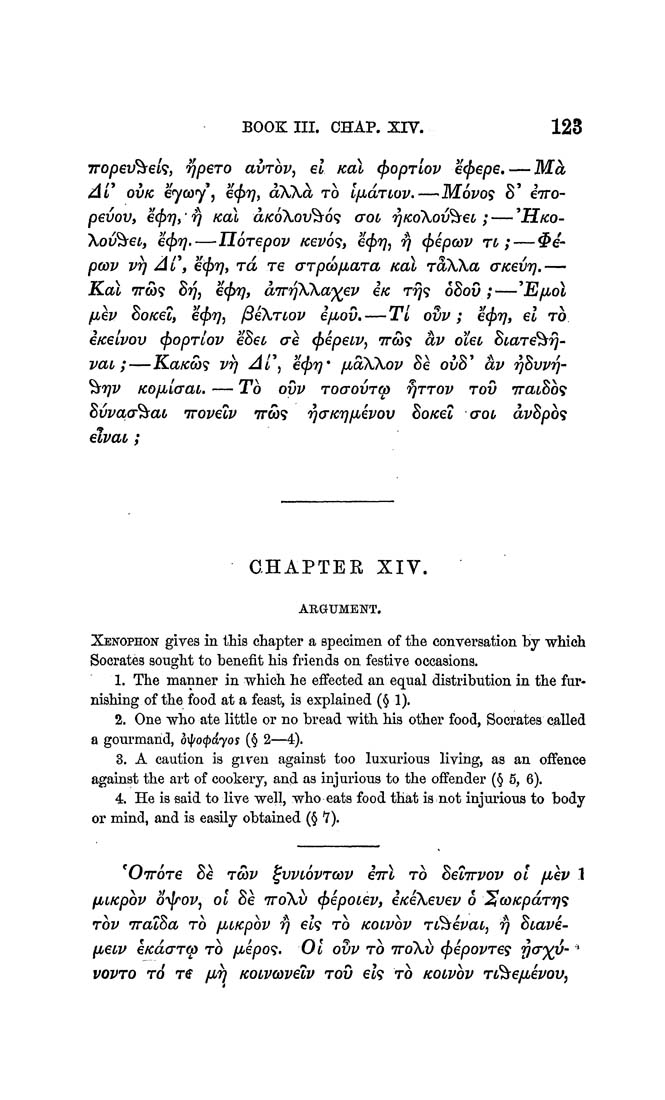BOOK IIL CHAP. XIV. 123
TTOpev^els, ypeTO avTbv, el Kal cpopTtov ecpepe, — Md
AC OVK eycoy*, ecpy, dXXd to IptaTtov.—M6z^09 8' eTTO-
pevov, ecpy,'fj Kal aKoXov^bs aot yKoXov^et; — ^Hko-
Xov^et, ecpy.—UbTepov Kevbs, ecpy, fj cpipcov tl ; — te¬
pcov vf) AC, e<py, Ta Te aTp&ptaTa Kal TaXXa aKevy,—
Kal TT&S Sy, ecpy, aTryXXaxev iK Tys bSov;—^Eptol
pbev SoKel, e^y, ^iXTtov iptov, — Tl odv; ecpy, el to
eKelvov ^opTiov eSet ae ^ipeLv, tt&s dv oteL StaTe^fj-
vat;—KaK&s vy AC, e^y* ptdXXov Se ot'8' az' ySvvTJ-
^yv Koptiaat, — Tb ovv Toaomco fJTTOv tov TratSbs
SvvcLa^at TTOvelv tt&s yaKyptevov SoKel aot dvSpbs
elvaL;
CHAPTER XIV.
ARGUMENT.
Xenophon gives in this chapter a specimen of the conversation by which
Socrates sought to benefit his friends on festive occasions.
1. The manner in which he effected an equal distribution in the fur¬
nishing of the food at a feast, is explained (§ 1).
2. One who ate little or no bread with his other food, Socrates called
a gourmand, orpocpdyos (§ 2—i).
3. A caution is given against too luxurious living, as an oifence
against the art of cookery, and as injurious to the offender (§ 5, 6).
4. He is said to live well, who eats food that is not injurious to body
or mind, and is easily obtained (§ 1).
'OTrbTe Se t&v ^vvLbvTcov iTrl Tb Sehrvov ol ptev 1
pbtKpbv oylrov, ol Se TToXii ^ipotev, iKiXevev b ScoKpaTys
Tbv TralSa Tb pttKpbv fj els Tb Kotvbv TL^ivaL, fj Stavi-
ptetv eKaaTcp Tb ptipos. 01 odv Tb ttoXv cpipovTes ycryv- ^
vovTo TO Te pbf) Kotvcovelv Tofj els to Kotvbv TL^eptivov,
|








